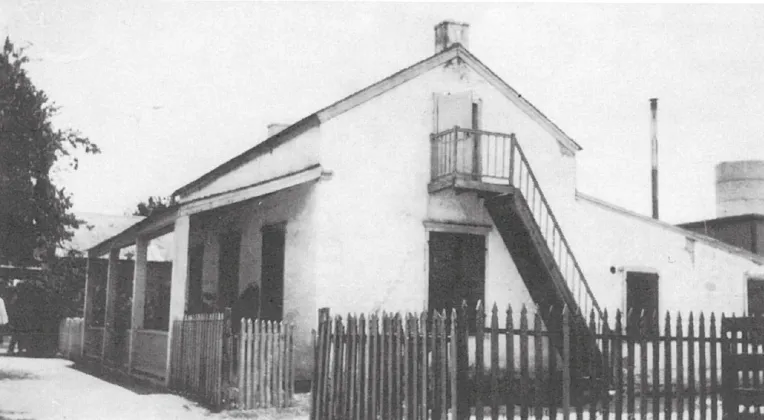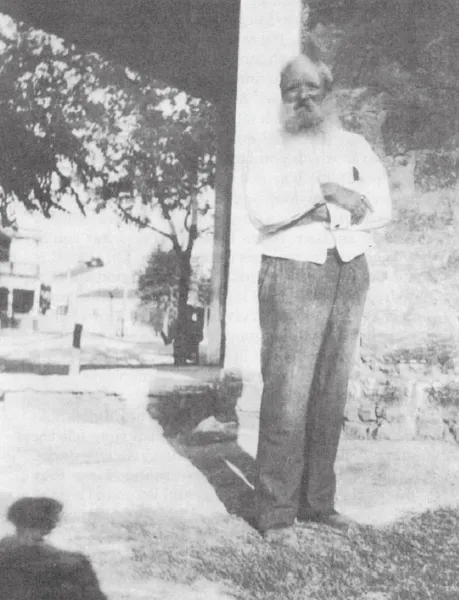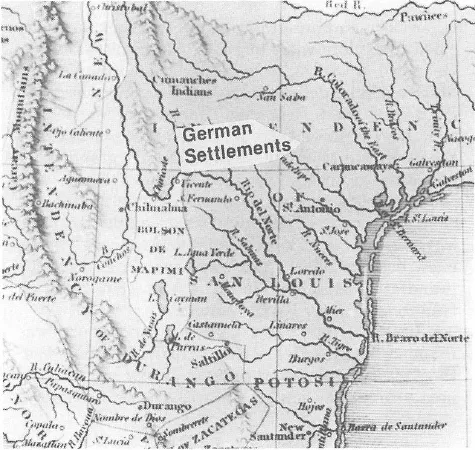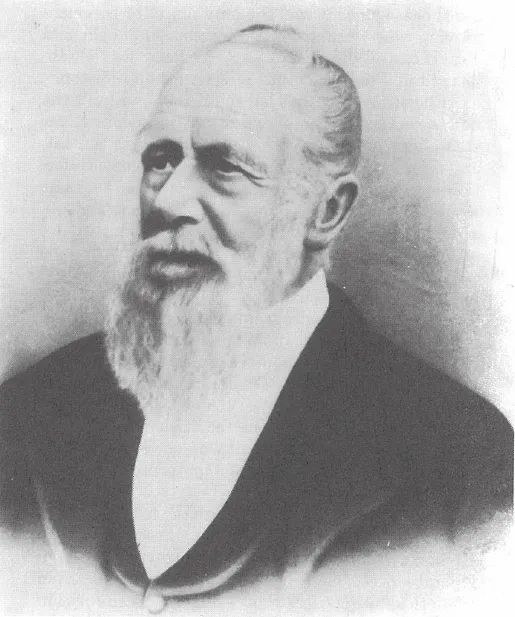
eBook - ePub
Chester W. Nimitz
Admiral of the Hills
Frank A Driskell, Dede W Casad
This is a test
Share book
- English
- ePUB (mobile friendly)
- Available on iOS & Android
eBook - ePub
Chester W. Nimitz
Admiral of the Hills
Frank A Driskell, Dede W Casad
Book details
Book preview
Table of contents
Citations
About This Book
From his boyhood days in the Hill Country of Central Texas to the apogee of his career as Commander-in-Chief of the Pacific, Chester W. Nimitz reflected the best qualities of his German-European heritage and the frontier society of his native land. These two Texas authors bring out the influences that profoundly shaped the man Nimitz from his boyhood days, through his years as a cadet and finally to the development of the officer that subordinates would come to love and respect.
Frequently asked questions
How do I cancel my subscription?
Can/how do I download books?
At the moment all of our mobile-responsive ePub books are available to download via the app. Most of our PDFs are also available to download and we're working on making the final remaining ones downloadable now. Learn more here.
What is the difference between the pricing plans?
Both plans give you full access to the library and all of Perlego’s features. The only differences are the price and subscription period: With the annual plan you’ll save around 30% compared to 12 months on the monthly plan.
What is Perlego?
We are an online textbook subscription service, where you can get access to an entire online library for less than the price of a single book per month. With over 1 million books across 1000+ topics, we’ve got you covered! Learn more here.
Do you support text-to-speech?
Look out for the read-aloud symbol on your next book to see if you can listen to it. The read-aloud tool reads text aloud for you, highlighting the text as it is being read. You can pause it, speed it up and slow it down. Learn more here.
Is Chester W. Nimitz an online PDF/ePUB?
Yes, you can access Chester W. Nimitz by Frank A Driskell, Dede W Casad in PDF and/or ePUB format, as well as other popular books in Geschichte & Militärische Biographien. We have over one million books available in our catalogue for you to explore.
Information
Topic
GeschichteSubtopic
Militärische Biographien1
NIMITZ
The Boy

THE HOME OF Heinrich and Dorthea Henke on Main Street in Fredericksburg where Chester Nimitz was born.
— Courtesy Admiral Nimitz State Historical Park

1
An Admiral Is Born
The odds were one in a million.
For a boy from the Texas Hill Country to become commander-in-chief of the largest military armada ever assembled was about as unthought of as sending a man to the moon—and yet they both have become a part of history.
One of the first German settlements in the mid-century movement in Texas was Fredericksburg, so named in honor of Prince Friedrich of Prussia. The prince had shown sympathy for his fellow countrymen who were victims of the estate system in the homeland.
The heritage of this pioneer village was completely German and today it remains much the same. Visitors come from far and wide to enjoy the traditional food, distinctive and spicy as only natives with pride and patience can prepare it.
The German Texans had been slow to develop a bilingual society. Finally, when it did take shape, it was from necessity rather than desire. One family sent their son away to college. He wrote home explaining he would be required to take a foreign language and wanted to know what he should take. His parents talked it over and then replied: “Tak English, Son. De people haf already scharted bespeakin’ it aroundt hier.”
The language of the street is a mixture of German and English. Signs in some store windows declare, “English is also spoken here,” an indication this small town still relates to its ancestry.
To preserve the Old World charm in a New World setting has been the goal of these descendants of 18th century German colonists. They are determined to avoid a mass-media motivated economy which would hasten change and promote growth. Visitors are welcome to enjoy the traditional lifestyle that has remained but are not encouraged to become residents of this selective community.
Heinrich and Dorthea Henke, a young couple who accompanied Baron Ottfried Hans von Meusebach from New Braunfels in 1846, became a part of the early history of Fredericksburg. It was in their home on Main Street that their oldest daughter, Anna Henke Nimitz, gave birth to her first child on February 24, 1885, a son, Chester William Nimitz.
His grandfather, Captain Charles H. Nimitz, because of his own experiences in the German merchant marine, resolved to teach his grandson early to love the sea as he always had. For patriotic reasons, Captain Nimitz liked to associate young Chester’s birthday with that of George Washington. His mother, on the other hand, preferred to turn back the clock and call him “My Valentine Boy.”
The two most influential people in the early life of Chester Nimitz were his mother and his paternal grandfather. Years later the Fleet Admiral wrote of his grandfather: “I didn’t know my father, because he died before I was born, but I had a wonderful white-bearded grandfather. He was Charles H. Nimitz, who settled in Fredericksburg, Texas, and built a steamboat-shaped hotel. Between chores and homework I listened wide-eyed to stories about his youth in the German merchant marine. ‘The sea — like life itself— is a stern taskmaster,’ he would tell me. ‘The best way to get along with either is to learn all you can, then do your best and don’t worry — especially over things over which you have no control.’ ”
Although it was not a deliberate action, young Chester’s early life was a conflict of wills. His mother leaned in one direction and his grandfather pulled in another. Anna Nimitz wanted her son to have the gentle qualities of his father. On the other hand Captain Nimitz instilled in his grandson that self-defense is the first law of survival and assured him that long range survival depends on the character of the individual involved.
Like other children in the area, Chester grew up in a bilingual environment. The immigrants spoke German among themselves but if strangers were present, they reluctantly shifted to English. At times they mixed the two languages if they felt the need to disguise some of their crusty side remarks.
The children liked to slip around when they thought they wouldn’t be seen and listen to the men talk. As a result, they learned some choice words. They also got their mouths washed out with strong soap after they repeated those words.
Young Chester was no exception. While hiding behind the bar in the hotel saloon, listening to his grandfather tell some tall Texas tales, he was caught by his mother. She started looking for him when the call to come help her had gone unanswered. She was making bread and needed him to work the dough.
Anna Nimitz had a good idea of where to look for her four-year-old son. Amid the laughter of Captain Nimitz and his visitors, she led him away to the kitchen sputtering reprimands in German. All the while Chester was pulling away from her.

GRANDFATHER NIMITZ in the early days of the Steamboat Hotel.
— Courtesy Admiral Nimitz State Historical Park
When they reached the kitchen, he relaxed. Looking up at his mother with a twinkle in his eyes, he spoke in German: “Mutter, du hast mehl an deiner Nase!” (You have flour on your nose, Mother.)
Anna Nimitz found it difficult to keep a straight face. Her snappy eyes softened as she put a towel over her face to cover her expression. She gave him a gentle push in the direction of the bread board and said in an attempt to remain firm, “Machen sie sehr schnell. ” (Make yourself hurry.)
The little incident marked the beginning of a pattern the future admiral would employ the rest of his life. It involved action built around patience, a sense of humor that withstood adversity, and an accurate ability to evaluate people.
In spite of his humble beginning, Chester Nimitz had an aristocratic background. The von Nimitz family migrated to Saxton, Germany, from the Baltic state of Livonia, making the move after the Thirty Years War. Sweden had taken over northern Livonia, forcing the Nimitz men to fight with the Swedish army.
The Nimitz name had long been prominent in military affairs. Their activities dated back to the Knights of the Sword where an organization called the Knights of the Teutonic Order originated. They concentrated on converting pagans to Christianity in the disputed territory between Germany and Poland. Later they took over land along the Baltic coast in an area that is now a part of Poland.
The Nimitz family seemed to take roots in Germany but it wasn’t long until they were eager to be on the move again. Glowing reports about a new land, known as Texas, began to reach Germany and Poland by letters received from missionaries working in and around New Braunfels, a German village settled in 1844.
The German immigrants began arriving at ports on the Texas coast the last two months in 1844. The Nimitz family was not among the original settlers and part of them did not come to Texas at all. The first six thousand immigrants arrived at Indianola, a Gulf Coast port on Matagorda Bay, which later was destroyed by storm.
There were many hardships to overcome from Indianola to New Braunfels and the trip took about three weeks. Many of the women wore ankle-length dresses and wooden shoes which made walking difficult. At times they took turns riding in ox carts but their wide hats with flat crowns tended to get in their way.
The men found walking easier by wearing their high top boots with wool pants stuck down in them. They wore wool shirts topped by leather suspenders and vests made from leather or sheepskin. A few had Alpine hats but most of them wore high crown caps as they were more plentiful. As a whole the group appeared anything but prosperous and suited to the Texas climate. Most of their household belongings had been sold to get money for passage and food. They began their new life with the little money they had managed to save and their strong determination to find happiness in the new land.
Karl Heinrich Nimitz, Sr., the great-grandfather of Chester, served in the German merchant marine as did his son, Karl, Jr. The elder Nimitz did not go to sea from choice but because of a bad financial situation. He was the last of the Nimitz line to be blessed with a title and prosperity but the neglect of his estate caused him to go bankrupt. As a playboy, so to speak, he was inclined to hunt during the day and party at night. When there was no other recourse he settled his debts by going to sea. As soon as he was able to discharge his obligations he sought new sources of income.

MAP SHOWING the German settlements in the Texas Hill Country.
— Courtesy Admiral Nimitz State Historical Park
In 1840 three of Karl’s older children migrated to Charleston, South Carolina. He and their mother joined them three years later after he had given up the sea. Karl, Jr. followed about a year later and the Nimitz family was united once more.
Karl, Jr. was unable to adjust to the quiet life in Charleston after his years at sea. He had heard of other German immigrants going to Texas so he decided to explore what might be found farther west. He sailed down the Atlantic coast into the Gulf of Mexico and landed at Indianola. From here he made the trip to New Braunfels. Baron von Meusebach was ready to leave there for his pioneer journey into the Texas Hill Country, so the admiral’s grandfather joined the group that founded Fredericksburg.
When the new settlement was established and chartered many of the immigrants anglicized their Christian names. Baron Ottfried Hans von Meusebach became John O. Meusebach. The admiral’s grandfather changed his name from Karl Heinrich Nimitz to Charles Henry Nimitz.
In 1848, two years after Fredericksburg was founded, Charles Henry Nimitz married Sophie Dorthea Muller, the daughter of a fellow settler. The next year she presented him with the first of twelve children.
There are conflicting reports concerning the first years of married life for the grandparents of Chester Nimitz. One account has Charles keeping books for a lumber company situated on the nearby Pedernales River. Another credits the couple with being cooks at Fort Martin Scott, one of several army posts set up to protect the settlers from roving bands of Indians. A third report mentions Charles serving briefly with the Texas Rangers, the elite law enforcement organization.
The records at the Texas Capitol in Austin give no indication that a Charles Henry Nimitz was ever a member but records then were not complete. It is difficult to know whether he served or not.
His true profession surfaced in 1852 when he built a small hotel near the east end of Main Street to accommodate ranchers, the soldiers, and the sales people who came that way. It was an immediate success since it was the only place for travelers moving westward to stay between Indianola and San Diego, California. Later, El Paso was established but Fredericksburg still was the first stop.

BARON MEUSEBACH, who renounced his title in Germany, to become John O. Meusebach, the leader of early colonists in Texas. Admiral Nimitz’s grandfather became a part of Meusebach’s colony in Fredericksburg.
— Photo provided by Mrs. Irene Marschall King, Wago, Texas, from copy at U.S. Institute of Texan Cultures.
Charles Nimitz decided to expand and built the new structure in the shape of a Mississippi River steamboat, complete with a superstructure, a mast, and a crow’s nest. This unusual design was a reflection of his earlier love for the sea. In later years he would sit in the crow’s nest and hold his grandson, as they looked down on the main street. Here many of his early experiences were related. According to reliable reports, many of his sea stories originated in that same crow’s nest.
An expansion program enlarged the original structure from a “six room adobe house” to a hotel with forty-five guest rooms, a dining room, a saloon, and a combination ballroom and theater. In the rear was a smokehouse, a brewery, and a bathhouse, the first on the frontier. All the facilities of the Steamboat Hotel were surrounded by an adobe wall which was topped by broken glass for protection from thieving Indians.
The maternal grandparents of the future admiral settled further north on Main Street. Heinrich Henke, a teamster who hauled freight for the Confederate forces, also opened the first meat market in Fredericksburg. After processing the fresh meat in the back yard, he sold it from the front porch of the little fieldstone house. The horses that pulled the wagon used for home delivery were also stabled in the back yard.
In time a long dining room and kitchen, covered by a slanting roof, were added to accommodate the growing Henke family which finally tota...